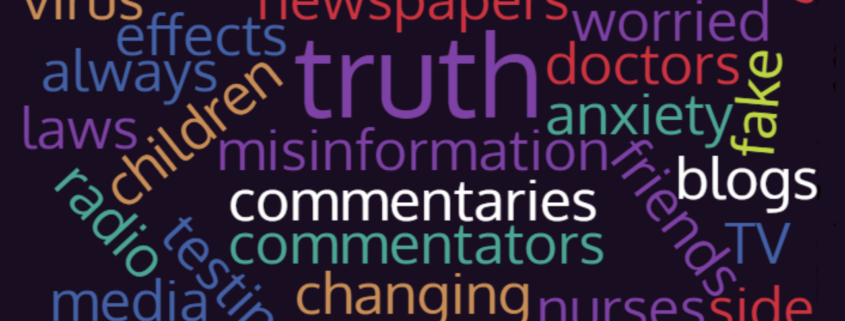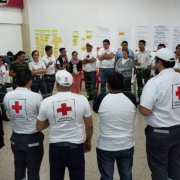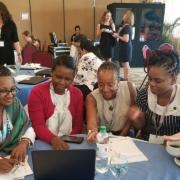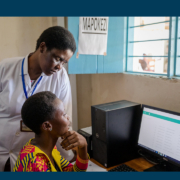The Dangers of Misinformation and Rumors During Health Emergencies
Written by: Susan Leibtag, Compass Curator
In the past 18 months, the world has changed a great deal: a pandemic has altered all our lives in myriad ways.
When it comes to obtaining information while living in a worldwide health crisis, we tune in to every news report, read the ever-changing health mandates, and try to protect ourselves and our loved ones as much as possible. To say that we are overloaded with information is an understatement. Everywhere we turn—phones, television, radio, billboards—we are presented with the “latest” information. And too often, this includes new MISinformation and rumors.
The dangers of misinformation and rumors are clear: wrong information spreads quickly, leading to sometimes dangerous actions, even death. And we’re not just talking about COVID; the dangers of misinformation have impacted society since the earliest plagues on record. In 1348, for example, King Philip VI of France asked the greatest medical minds at the University of Paris to report back to him on the causes of the bubonic plague. In a detailed document submitted to the crown, they blamed “the configuration of the heavens.”
More recently, when Ebola swept across West Africa from 2013 to 2016, unfounded rumors that medical staff were carriers of the disease dissuaded many from turning to treatment centers, leading to attacks on health facilities and home remedies that thwarted efforts of containment (Full Fact).
The World Health Organization (WHO) even went so far as to state that misinformation can kill after a study found that in just the first three months of 2020, when “nearly 6,000 people around the globe were hospitalized because of coronavirus misinformation … at least 800 people may have died due to misinformation related to COVID-19.”
A recent assessment of social media availability worldwide found that almost 4 billion people use social media. Certainly, this access helps millions around the world gain access to accurate guidance about prevention, testing, and vaccination about infectious diseases. However, this also means increased access to inaccuracies. Thus, we find ourselves dealing with an “infodemic”: an overabundance of information stemming from multiple sources simultaneously, leaving the individual to determine what is true and what is not.
Amid health emergencies of any kind, social and behavior change (SBC) professionals need to not only communicate effective, engaging, and correct information about infectious diseases but also simultaneously disprove hundreds, if not thousands, of rumors and pieces of misinformation about the disease.
The Compass’ latest Trending Topic provides tools and country-specific examples of dealing with this topic. If you would like to contribute to this Trending Topic, please write to the Compass, or upload your material.


 Poravute/Getty Images
Poravute/Getty Images Sean Maloney/Breakthough ACTION
Sean Maloney/Breakthough ACTION Anne Ballard Sara/Breakthrough ACTION
Anne Ballard Sara/Breakthrough ACTION K4Health
K4Health
 Rachel Chilton/USAID/Flickr
Rachel Chilton/USAID/Flickr